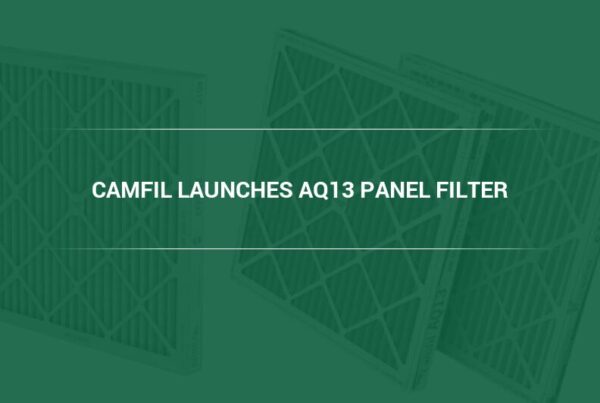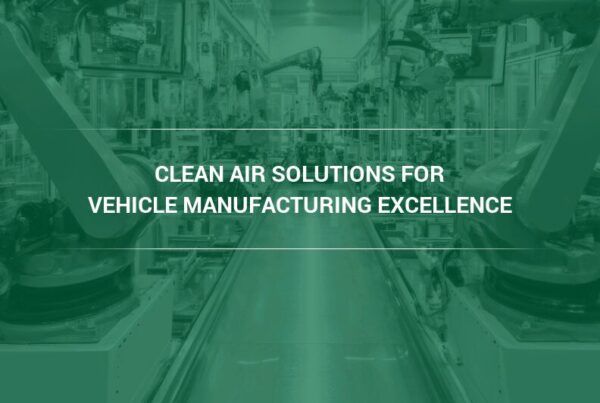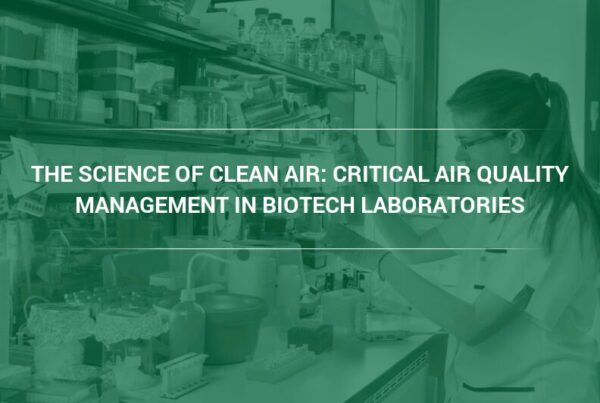Most people don’t think about their HVAC air filters very often, but it is one of the most important aspects of ensuring that the indoor air quality is at the highest quality level possible. And that’s especially important given the fact that per an article on CNN.com, “air pollution causes one in nine deaths worldwide.” The issue is that many people just don’t know how to determine when it is time for a filter change, so they put it off until they see black dust and particles blowing from their vents, which is often several months too late.
“The basic idea behind an air filter is that it is designed to trap tiny particles that blow in from the outside air that comes into a house or commercial facility,” stated Camfil’s Charlie Seyffer, Manager of Marketing & Technical Materials and 37-year ASHRAE member and active committee participant. “But when that air filter is clogged with dust and particles, it forces the entire heating and air conditioning system to work harder to circulate air, and it also blows dirty air throughout a space. Therefore, understanding when it’s time to change air filters is of vital importance in the quest for clean indoor air.”
Before diving into the signs that it’s time to change your air filter, it is first important to understand the most common types of filters on the market.
According to an article on the FacilitiesNet website, the most common types of air filters are:
Washable These types of filters are made out of a metal or cloth material that can be washed, which means that you don’t have to change them as often as the other types of filters. However, washable filters are most often utilized in commercial and industrial settings in which high amounts of dust and particulates are a constant problem.
Fiberglass These filters are made from fiberglass fibers stacked on top of each other and held together with a metal grating.
Polyester/Pleated These filters have a pleated design with a higher airflow resistance than fiberglass filters.
Bag/Box or V-Bank Filters High efficiency air filters typically used in commercial buildings, educational facilities, malls and medical facilities.
HEPA High efficiency particulate arrestance filters have become the “superstars” of air filters because they are rated to capture 99.97% of particulates that are 0.3 microns in diameter or larger, which is about 300 times smaller than a strand of human hair.
The efficiency of your air filter will often determine how often you need to change it.
Filters that operate at high efficiency, which translates into the higher percentage of pollutants they remove from the air, will need replacement more often than an inefficient filter that allows more particles to circulate through the vents of your home or commercial facility.
Signs That Your Air Filter Needs Replacing
Pet Dander According to a piece on the InterNACHI website, the presence of pet dander is a major “sign” that you need to change your filters at least once a month.
“Pet dander can become airborne and circulate through the home’s ventilation system just as typical household dust does,” according to the piece.
Increase in Allergies and Breathing Problems If you notice a sudden increase in allergies or respiratory illnesses among residents of your home or workers at a facility that is often a strong sign that the air filters are clogged and are unable to filter out the particulates that aggravate these conditions. Clogged filters also reduce airflow to the space further complicating the air quality problem.
White Sheet Test Another way to determine whether your air filters need changing is by hanging a white sheet several inches away from one of the vents in your home or commercial facility, and leaving it in place for an hour.
Take a look at the white sheet to see if it has turned gray or black, and the more dirt on that sheet, the more likely it is that your filter needs changing.
Electricity Bill Spike Another sign that your air filter may need changing is a sudden spike in your electricity or power bill over several months. Remember that air filters are a major factor in energy efficiency, because when they operate effectively, your HVAC system does not have to generate more power to force air through your vents.
Eye Test A lot of people get too busy to perform this simple inspection, but the important thing to remember is that you’re not just looking for dust and dirt, you are also making sure the filter isn’t damp, bent or damaged in any way, because that will affect the efficiency of the air filter.
Clean Air Solutions
Replacing your air filter can save you money and ensure that your HVAC system works at optimal levels.
For more than 50 years, Camfil has provided affordable and energy efficient air filtration devices to commercial facilities.
Please visit our catalog website for resources that can help you understand the importance of air filtration.
SOURCES



